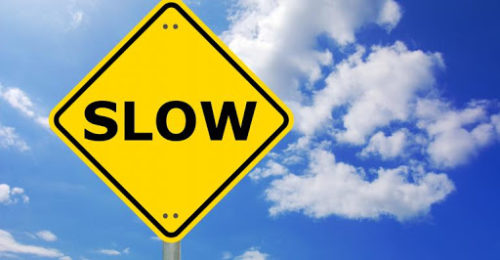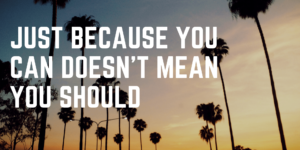Embrace Discomfort
JON DE ASIS
I once heard that, “If you do the same things as everyone else, you will end up in the same place as everyone else.” If you’re reading this, I’m assuming that ending up in the same place as everyone else is not something you aspire to do. You have your own personal dreams and naturally, you want to create more and be more. So why is it that you, as a human, have such a strong aversion to acting different?
If you take a look at nature, it only makes sense to conform to the actions of others. In order to survive, many animals will travel in herds or packs for safety from predators and the environment. Straying from the group could result in imminent death. This “herd mentality” is not exclusive to all animals BUT humans. In reality, you are just as susceptible to the same innate behavior.
Most humans no longer face the same problems they did centuries ago. However, the herd mentality remains even though its utility has diminished. In reference to Maslow’s hierarchy of needs, you have five needs that you strive to satisfy in the order of: physiological, safety, belonging, esteem, and selfactualization needs. Typically, you strive to satisfy the first need before you can move on to satisfying the second and third and so forth. In the modern era, gone are the days when you worry about protecting yourself from packs of wolves. You are able to easily fulfill your physiological and safety needs. Instead, you are more concerned with your sense of belonging, esteem, and self-actualization. The herd mentality is useful in terms of your survival but often proves to be a hindrance when it comes to personal development.
There is a feeling of discomfort that arises within you when you do something that is different from the pack. This discomfort, stemming from the herd mentality, is often viewed negatively—and understandably so! Discomfort detracts from your ability to be happy and enjoy the moment. Anything that detracts from your happiness can’t be good, right? At the surface, this might hold true. But by considering what is comfortable in your decision-making process and never expressing what it is that makes you different from anyone else, you make it near impossible to create anything new and satisfy your self-actualization needs which is more contributory to your happiness in the long-run. Those who are willing to withstand discomfort in the short term, are more likely to achieve success in the long term.
What if I told you that your comfort and good mood were actually acting against you? Well, it’s true. In Thinking Fast and Slow, Daniel Kahneman explains that you have two parts to your brain: one “fast” and one “slow.” The “fast” part of your brain is used for quick reactions and instantaneous decisions that are made frequently throughout your consciousness during the day—i.e. breathing when you need oxygen and chewing when food is put in your mouth. The “slow” part of the brain is used for decisions requiring analysis and deliberate thought.

According to Kahneman, when you are in a good mood, the “slow” part of your brain is impaired. You are less inclined to deliberately think through your decisions and more likely to go with the flow and be accepting of ideas that haven’t been adequately vetted. This is sometimes called “cognitive laziness.” It is only when your brain is put under some cognitive strain through discomfort, that the “slow” part of the brain is induced. With an active “slow” brain, you are able to make more calculated, intentional decisions that can position you closer to your goals.
Being a senior in college, I am surrounded by a lot of people going through some very dynamic years in their lives. Oftentimes these people, including myself at times, get caught up in the feeling of discomfort and get lost on the underlying cause of it and the purpose it can serve. Too many times have I seen knee-jerk reactions to alleviating this discomfort, whether it be through returning to the familiar, numbing with alcohol or drugs, or burying with trivial distractions.
None of these things are necessarily inherently wrong to do, but it is the intention of distancing yourself from the discomfort that creates the danger. In actuality, it is a good thing to just embrace the discomfort and put in the work and reflection it takes to understand where it can take you. When you hide from this discomfort, you are limiting yourself. You are, in essence, saying no to the challenge of getting somewhere better than where you are today. But when you understand it and act on that information, you are able to better see the underlying cause of the discomfort and reach heights you’ve never been before.
In no way is it bad to feel comfortable and in no way is it a good thing to put yourself in uncomfortable situations just for the sake of being so. Discomfort will enter your life regardless of what you do, and according to the principle of cognitive consistency, the human mind will always strive to return to a state of comfort. Therefore, barring chronic disorders, discomfort will also leave your life no matter what you do. The question then becomes: which path will you choose to take? Will you be honest with yourself and will you choose to take action to address the underlying cause of the discomfort? Or rather, will you shy away from the opportunity to grow and remain stagnant? One path will be easy and chosen frequently by many and the other will not. But your decision will make all the difference.
Interested in reading 99 other stories just like this? Grab The Better Business book here.




